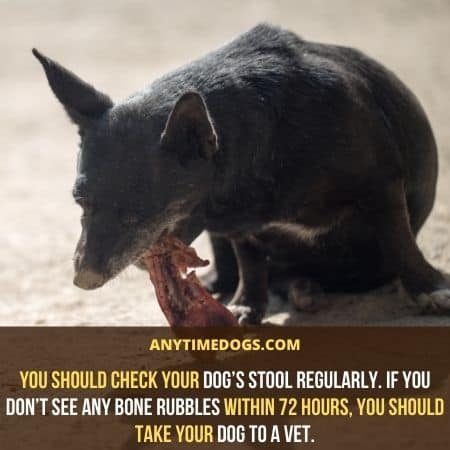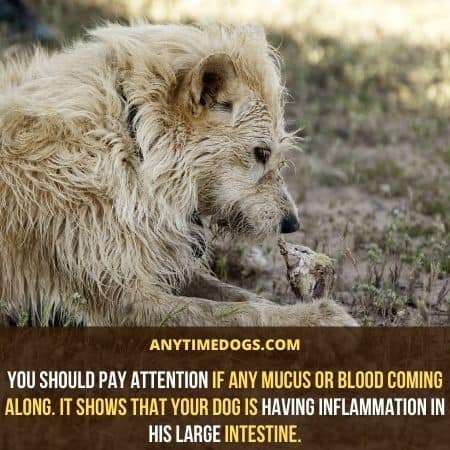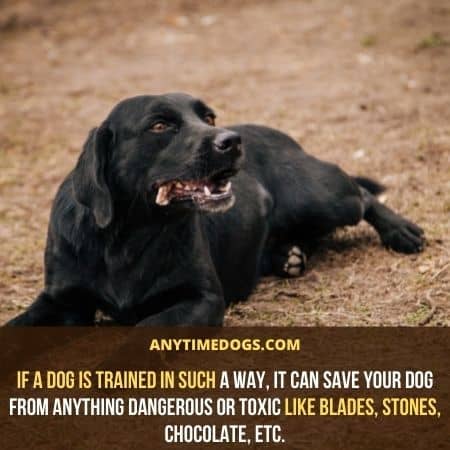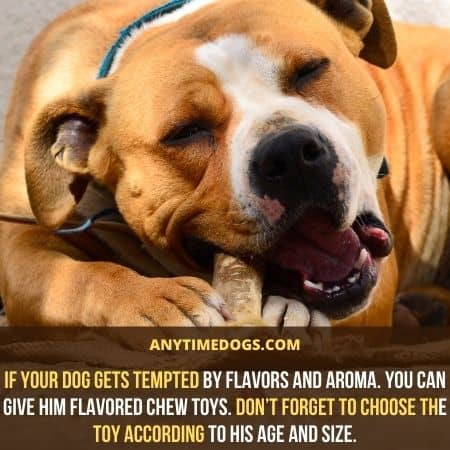It is very unrealistic to think about enjoying your meal alone when you have a dog at home. Their loveable snouts and bright eyes force you to share something with them from your plate.
Bones seem to be the favorite thing for dogs to eat and play with. But can dogs eat rib bones?
If your dog ate rib bone accidentally, there is no need to panic about it. However, you should be concerned about it.
In this article, we will discuss all the symptoms and problems your dog may have if he ate a rib bone.
Dog Ate Rib Bone, What Can You Do?
Many types of bones are safe for dogs to consume, but rib bones are not one of them. So, if your dog ate rib bone, you should be aware of the problems he might face how can you address them.
Eating a rib bone can result in several serious injuries. To ensure your dog’s safety and health, you can continue taking the following steps and keep checking your dog for any other severe reactions.
1. Inspect Your Dog’s Mouth:
If you found your dog eating a rib bone, immediately check his mouth. Remove all the leftovers and don’t forget to look for any splinters in his tongue, gums, and lips.
Are you wondering Do dogs have lips?
2. Keep an Eye on Your Dog for Any Upcoming Symptoms:
If you observe any of the following signs after your dog ate rib bone, take your dog to the Vet immediately. A Vet will examine your dog properly for any blockages, infections, or other internal injuries.
- Vomiting
- Difficulty in breathing
- Showing discomfort when you touch his stomach
- Tiredness
- Rejecting food
- Increased thirst
- Difficulty while passing stool
- Blood or mucus in stool
3. Consult With Your Veterinarian:
If you think your dog is not feeling uncomfortable after eating a rib bone, don’t sit relax. It does not show splinters are not clogging in his gastrointestinal tract.
We advise you to consult your Vet so that issues that are hidden can be solved before they get worse.
How Long Will a Rib Bone Take to Pass?
Well, there is no absolute answer to this question. It depends on a variety of other factors like the size of your dog, form, and size of the bone he ate (raw or cooked), etc.

You should check your dog’s stool regularly. If you don’t see any bone rubbles within 72 hours, you should take your dog to a Vet.
Can a Dog’s Stomach Digest a Rib Bone?
The stomach contains strong acids that can digest most things. So, your dog may digest a rib bone completely.
Still, it’s not true in 100% of the cases. Some fragments of the rib bone might not get digest. Therefore, it is very important to observe your dog’s stool to see if the bone leftovers pass.

You should pay attention if any mucus or blood coming along. it shows that your dog is having inflammation in his large intestine. Also, if you notice a black and tarry stool, it indicates that your dog is having internal bleedings in the intestine or stomach.
If so, immediately take your dog to a Vet and get him treated as soon as possible.
How Can I Help My Dog Pass a Rib Bone?
If your dog just ate a rib bone and you feel he is having difficulty in passing the bone through his throat, you can help him. Give him some bulky dry dog food or a piece of bread to swallow.
It will not only help him pass the bone through his throat but also his digestive tract and intestine. Dry food will wrap the bone fragments and then digestive juices make the digestion easy.
How to Stop Your Dog from Eating a Rib Bone?
As a dog parent, it is necessary to train your dog how to behave and respond to your commands. We always hear about obedience training when we get a puppy.
In puppyhood, a dog must be trained to follow the basic commands of its owner like “drop it”, “pick it”, “no”, “stay”, etc.

If a dog is trained in such a way, it can save your dog from anything dangerous or toxic like blades, stones, chocolate, etc. in their mouth. Trust me, obedience training can do wonders when it comes to any dangerous situation.
How to Do Obedience Training of Your Dog?
You can start obedience training of your dog with common commands like stop and drop whenever he picks something he shouldn’t.
It is very important to remember that you are not supposed to shout at him. This can evoke fear and he may swallow the object that’s in his mouth. Try to praise him every time he follows a command so that you can develop a good habit in him.
Never punish your dog even if he doesn’t obey a command because it can arouse aggression and you will not be able to train him. If he is holding anything unsafe, just pull it gently and let him go.
Safe Alternatives to Rib Bones
Dog love chewing, especially in puppyhood when they teething to lower pain in their gums. Chewing is not awful but it becomes terrible when your dog starts choosing furniture, shoes, and other harmful stuff for this purpose.
To fulfill your dog’s chewing desires, you can provide him some safe and healthy alternatives to rib bones.
1. Munching Toys:
There is a variety of safe chewing toys available for your dog. Chew toys are made of special plastics and nylons that are safe and non-toxic for dogs. Also, they come in various shapes, sizes, and textures so they can definitely satisfy your dog.

If your dog gets tempted by flavors and aroma. You can give him flavored chew toys. Don’t forget to choose the toy according to his age and size.
Puppy chew toys are small for helping massage their aching gums. Adult dogs can get large chewing toys that may have soft bristles as it can also help them clean their teeth by themselves.
2. Raw Bones:
Raw bones are a significant part of a canine’s diet. They are rich in calcium, phosphorus, magnesium, and other minerals essential for dogs.
Bones carry bone marrow and cartilage, which are stocked up with micronutrients like selenium, copper, glucosamine, and chondroitin that play a major role in a canine’s overall health.
Cooked bones can have splinters and can harm your dog in many ways. However, raw bones are safe for a dog to consume and help a dog keep better dental hygiene. It also reduces the risks of gum diseases.
Chewing is instinctual in dogs so you must satisfy his urge to chew with safe alternatives. Studies have shown that chewing can have positive effects on a dog’s mental health such as reducing anxiety and aggression.
Considering raw bones safe doesn’t mean you can feed your dog every day with raw bones. Along with benefits raw bones also have some risks. They can block a dog’s throat if they are large and can also damage his teeth.
Overeating raw bones can disrupt your dog’s stomach and lead to diarrhea. It is advised not to feed your dog raw bones more than once or twice a week.
Dog Ate Rib Bone- Final Thoughts:
Many raw bones are safe for dogs and serve them essential nutrients required for their overall health. However, if your dog ate a rib bone cooked or raw you must show concern and immediately take him to the Vet for a professional examination.
Dogs are fond of chewing bones. You can serve your dog with healthy and safe alternatives instead of letting him consume a rib bone.
Rib bones are hazardous for dogs and can not only cause damage to his mouth but also internal injuries and clog his gastrointestinal tract.

